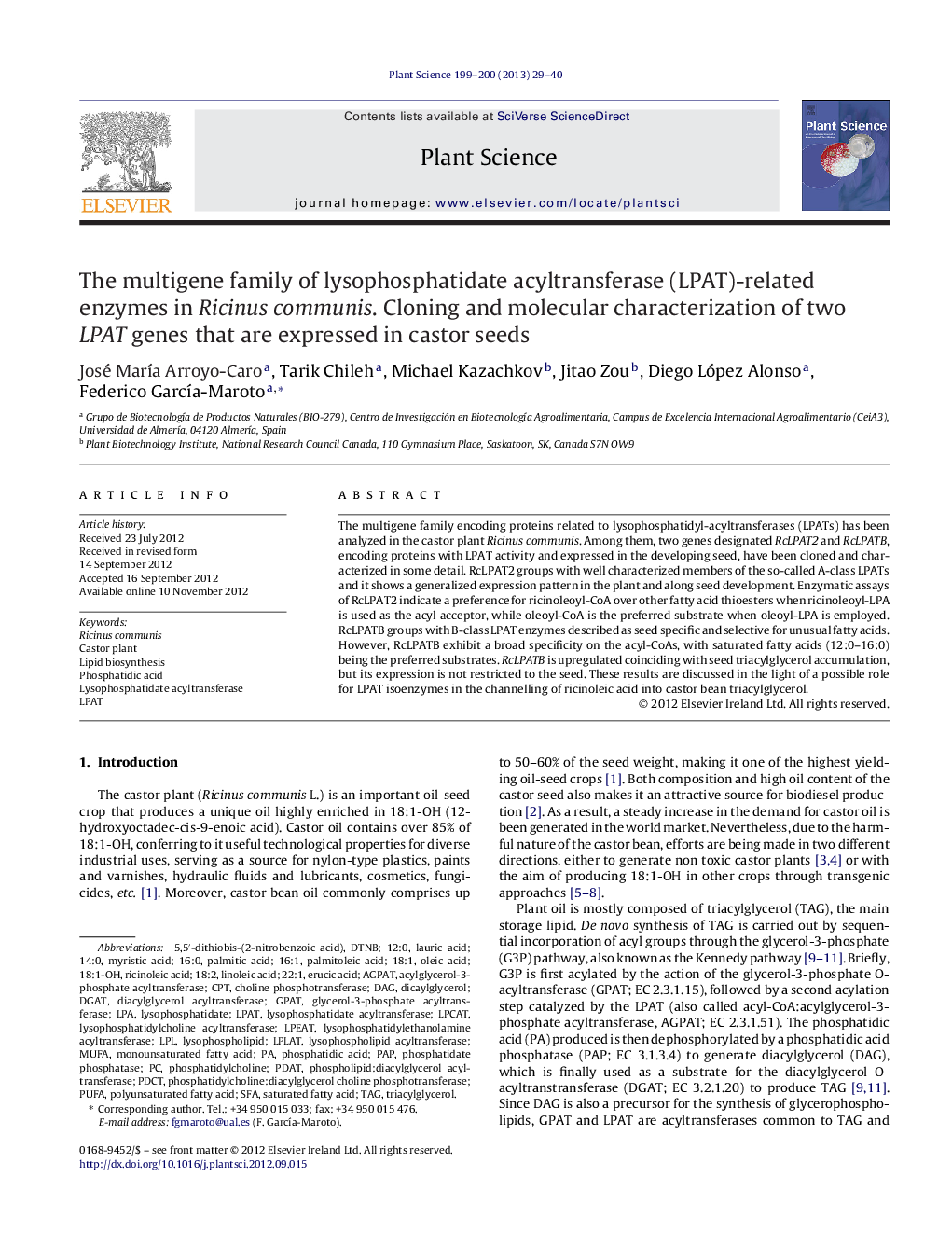| Article ID | Journal | Published Year | Pages | File Type |
|---|---|---|---|---|
| 2017332 | Plant Science | 2013 | 12 Pages |
The multigene family encoding proteins related to lysophosphatidyl-acyltransferases (LPATs) has been analyzed in the castor plant Ricinus communis. Among them, two genes designated RcLPAT2 and RcLPATB, encoding proteins with LPAT activity and expressed in the developing seed, have been cloned and characterized in some detail. RcLPAT2 groups with well characterized members of the so-called A-class LPATs and it shows a generalized expression pattern in the plant and along seed development. Enzymatic assays of RcLPAT2 indicate a preference for ricinoleoyl-CoA over other fatty acid thioesters when ricinoleoyl-LPA is used as the acyl acceptor, while oleoyl-CoA is the preferred substrate when oleoyl-LPA is employed. RcLPATB groups with B-class LPAT enzymes described as seed specific and selective for unusual fatty acids. However, RcLPATB exhibit a broad specificity on the acyl-CoAs, with saturated fatty acids (12:0–16:0) being the preferred substrates. RcLPATB is upregulated coinciding with seed triacylglycerol accumulation, but its expression is not restricted to the seed. These results are discussed in the light of a possible role for LPAT isoenzymes in the channelling of ricinoleic acid into castor bean triacylglycerol.
► The multigene family encoding LPAT-related proteins has been characterized in castor. ► Two genes RcLPAT2 and RcLPATB are significantly expressed in developing castor seeds. ► RcLPAT2 shows a preference for ricinoleoyl-CoA when ricinoleoyl-LPA is used as acceptor. ► The B-class LPAT of castor incorporates efficiently medium chain saturated fatty acids.
